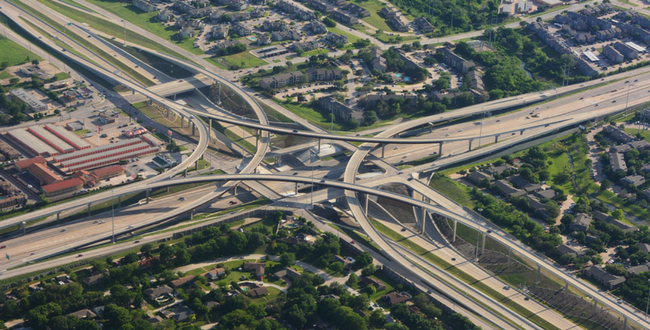
3 Trends We See in States Looking for Statewide Providers
Outdated, legacy software and administrative issues have both plagued many transit agencies for years. Trying to keep up with a faced-paced environment while still offering quality services to riders has become increasingly difficult. With technology and innovation now playing a larger role in driving the industry, many agencies are moving away from traditional and old-school software contracts and towards more forward-thinking and technology-driven partners. As a company with proven expertise in servicing both rural and urban agencies, we wanted to outline three major trends we're seeing for states considering statewide software providers.
Agility and Efficiency
Transit agencies struggling to keep up with high service demands and an influx of new riders often hear buzz words like "agility" and "operational efficiency" thrown around a lot; and for good reason. Being expected to provide quality customer service experiences to transit riders when systems are bogged down by archaic processes and outdated technology is a legitimate challenge. Making the switch to modern route scheduling software on a web-based platform can change the game and eliminate the obstacles that are slowing down operations. As statewide preferred transit software providers for the state of Ohio, Ecolane, CTS, and TripSpark, have all proven the ability to positively affect operational efficiency and promote transformational changes for agencies struggling in today's tumultuous climate. Outdated, legacy contracts with organizations like RouteMatch are becoming a thing of the past.
Coordination Accuracy
When it comes to specific advantages for statewide partnerships, coordination activity processes can be a major differentiator for the decision-maker. Modern transit software utilizes web intelligence to enhance all coordination efforts. In general, reporting for multiple agencies isn't easy. However, web-based reporting can create streamlined processes that are more flexible, more efficient, and allow for sharing of data over a single platform. Further, housing all of this data and being able to access it from a single platform portal is a significant operational advantage. This becomes that much more important as many agencies find it increasingly difficult to track the flow of dollars as trips are provided. Complicated reporting tools hinder a manager’s ability to build reports and actually use information extrapolated from collected data to improve their transit operations.
Next-Generation Technology
Adapting to changing demographics and an ever-changing business climate, most agencies look at upgrading their transit software in order to keep up with demand. For paratransit routes, the demand will continue to rise as the disabled community continues to grow and the effects of the silver tsunami are felt more strongly. Being able to present a customer-centric and easy-to-use scheduling platform can be the difference between earning a rider's trust and losing a customer. Next-generation technology, like Ecolane DRT, excel at real-time route optimization and industry-leading reporting while also offering the capability to export data. Having not only the ability to adapt to route schedule changes in real-time but also the ability to collect that data for future planning is what separates industry's leaders from the competition.
There are multiple reasons that states benefit from sourcing a single transit software provider (or a select group of providers) for statewide contracts. Building statewide consistency is one obvious example, as is allowing agencies to learn and share with each another. Having the opportunity to leverage a web-based platform to use intelligence to boost all coordination efforts has already proven to be effective for Ohio transit agencies. Having quality and meaningful data housed in a single, agile platform has helped agencies in the state of Pennsylvania combat the daunting industry challenges.
The invaluable benefits seen from Ecolane's agile route scheduling software does create a better environment for both transit agencies and transit riders across a state. Since being named the sole transit software provider for the State of Pennsylvania several years ago, Ecolane has been able to make an impact on many agencies. Perry County Transit Authority was able to reverse a negative cash flow situation by reducing fuel expenditures by 40% and reducing overall operational costs. Suburban TransNet, Perry County, and rabbittransit were all able to increase hourly ridership after implementing Ecolane transit software. Implementing modern route scheduling software with a trusted provider like Ecolane can make a major impact on an agency's critical transit metrics.
To learn more about how Ecolane can make a difference in your state contact us for a demo.



